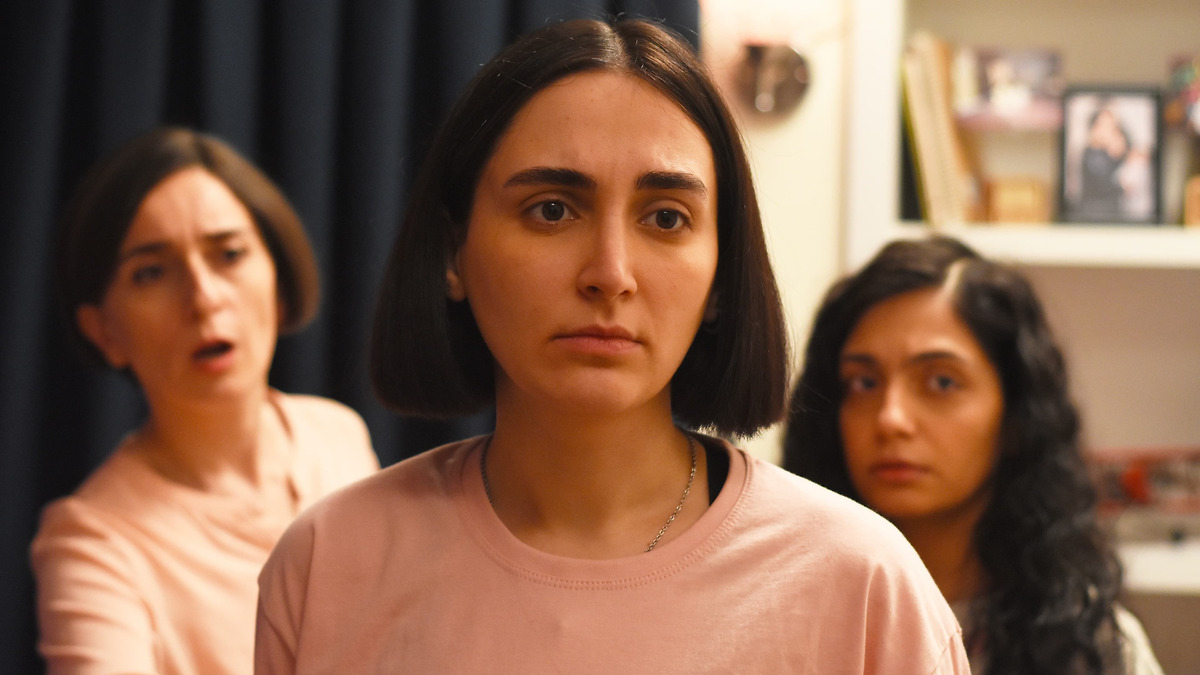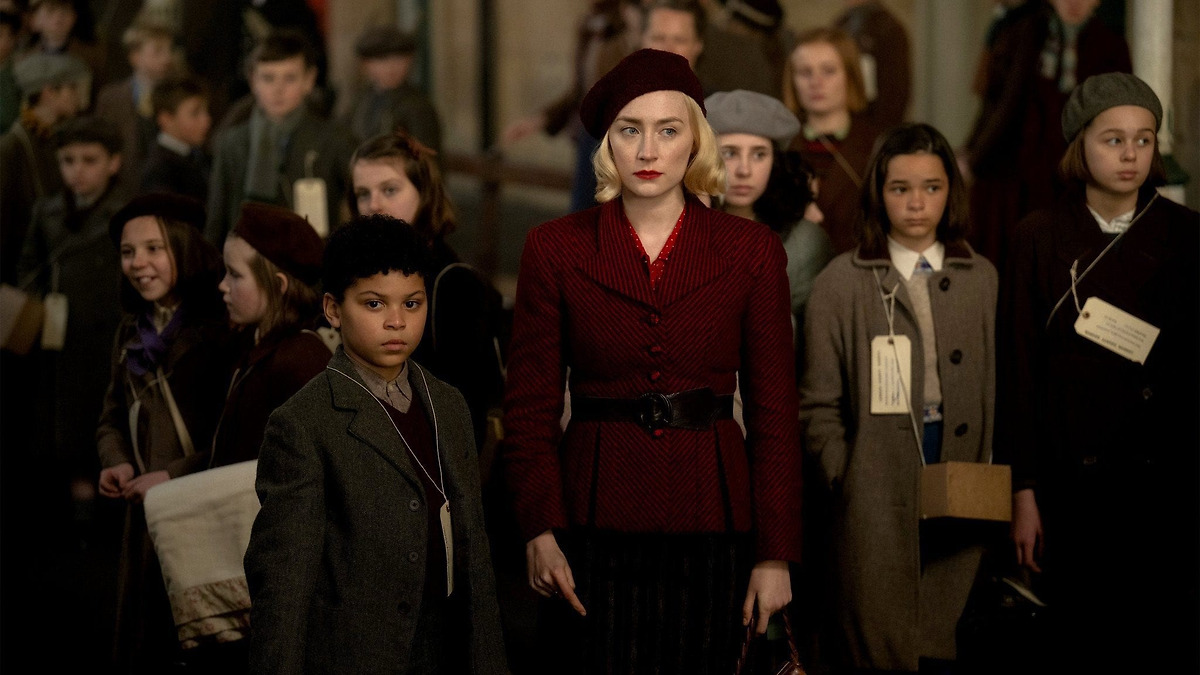The 60th Chicago International Film Festival

The Seed of the Sacred Fig
An investigating judge in the Revolutionary Court in Tehran grapples with mistrust and paranoia as nationwide political protests intensify and his gun mysteriously disappears. Suspecting the involvement of his wife and their two daughters, he imposes drastic measures at home, causing tensions to rise. Step by step, social norms and the rules of family life are being suspended.
After premiering at the Cannes Film Festival, competing for the Palme d'Or, and winning the jury's Special Award, The Seed of the Sacred Fig is recognized as one of the most important films released this past year. Written and directed by Iranian independent filmmaker Mohammad Rasoulof, this political thriller drama blends fictional storytelling with sobering non-fiction where a family drama unfolds set against a mirage of real images of violent protests against the authoritarian regime in Iran. After a 22-year-old Kurdish Iranian woman died in the police custody for allegedly wearing a hijab improperly, the protests that erupted are from the "Woman, life, and freedom" movement. The film was shot in secret because Rasoulof has been arrested, jailed, and banned from filmmaking in his native country. He miraculously attended Cannes after fleeing an eight-year prison sentence imposed by Iranian authorities in an effort to suppress his art and activism. The Seed of the Sacred Fig is not an effective film just because of its important subject matter, but also because it has a fascinating and messy-but-realistic setup that challenges viewers and their expectations. When a father is promoted into a higher-ranking role as an investigating judge in the Revolutionary Court in Tehran, he is forced into a life of anonymity in order to provide and protection for his family. As the political protests against the authoritarian government intensify, the relationship between the father and his daughters deteriorates. In trying to provide for his family and tow the thin line of danger and exposure, he rejects their feminist sensibilities and considers it dangerous propaganda. Needless to say, using this family as a proxy is a dark way to explore how dangerous repression can be, where distrust can usurp love. With a muscular runtime of 168 minutes, this film gives its audience a lot to handle. The power of the core message behind this film holds the film together, which loses steam and nearly falls apart in the last 30 minutes. This is an unflinching look and fiery declaration against the suppressive authoritarian regime in Iran. The Seed of the Sacred Fig is Germany's entry for this year's Best International Feature Film at the Academy Awards, and I expect this film is a shoo-in to get a nomination. The fact that this film exists is a miracle, the kind of courageous act of artistic expression that is meant to infuriate and inspire.
Blitz
In World War II London, nine-year-old George is evacuated to the countryside by his mother, Rita, to escape the bombings. Defiant and determined to return to his family, George embarks on an epic, perilous journey back home as Rita searches for him.
Without question, Sir Steve McQueen is considered one of his generation's most visionary and important contemporary filmmakers. In the decade since 12 Years a Slave, the film that made him the first black director to win an Academy Award for Best Picture, McQueen has been at the helm of several ambitious projects, including the neo-noir heist thriller Widows, the anthology film series Small Axe, and the documentary film Occupied City. His latest film, Blitz, is a historical war drama set in London about a family being torn apart and the journey to be reunited amid the German’s bombing campaign against the United Kingdom in the Second World War. In many ways, Blitz is reminiscent of a film we’ve all seen before, a kind of cinematic echo told in the tradition of other British-centric stories set during World War II (a subject matter and time period with a rich film history). But with McQueen’s sensibilities and through his lens, the film feels fresh and is a change of pace for the esteemed director, an opportunity to work on a larger scale and put his spin on a familiar mode of storytelling. Told through the eyes and ears of a child, Blitz uses its narrative framework to view things primarily through a child’s perspective, a 9-year-old named George (Elliott Heffernan). He is the child of an interracial couple; he lives with his mother, a white woman named Rita (Saoirse Ronan), but his father, Marcus, is a black man who was deported to Grenada. Once the Nazi bombing begins in London, Rita makes the difficult decision to send George on a train to evacuate the country for his safety. As he’s leaving the city, George jumps off the train to return to his mother, and the film is a myriad of vignettes showing George’s journey to survive and reunite with his mother. So much of what’s here feels familiar as far as WWII movies go, but what necessitates this film’s existence is the balancing act in embracing and subverting the tropes that go into that kind of story. In some ways, the film feels like a throwback period piece, the kind of old-fashioned glossy and polished sort of filmmaking to which movie-going audiences have grown accustomed over time. But Blitz has more to offer than just nostalgia and sentimentality. The film tries to deconstruct some of the tropes that are hard to avoid here. Sure, many of the characters are still stoic and have that “stiff British upper lip” that you come to expect in this type of story, but there is a broader diversity and greater emotional vulnerability to the characters rendered in this story. The film spends more time building a world and coloring the culture of the faces and places George encounters during his odyssey. Consistent with his shrewd attention to detail, McQueen unearths (and perhaps somewhat revises) what might have happened during a particularly devastating time and place in our recent history. Blitz has a familiar feeling but is reframed and conceived in a way that could only have come from a particularly gifted filmmaker and his unique artistic perspective. Though the sum of all its parts may not capture the highs of his previous works, I found Blitz to be engaging, vibrant, and wrenching.
Nickel Boys
Chronicles the powerful friendship between two young Black teenagers navigating the harrowing trials of reform school together in Florida.
Last year, I wrote about another magnificent film and talked about how films that affect you and those around you in a profound way are rare gifts. It doens't happen often that you get so engrossed in a movie's story and so fully transported by such high-level filmmaking that you leave the theater feeling like a different person. But when it does, that sort of personal growth and changed perspective can be life-affiriming, life-changing, and on the rare occasion, both of those things. I had this kind of feeling walking out of the theater after seeing Nickel Boys, an astonishing film that is the narrative feature directorial debut from RaMell Ross, which yes, is nearly impossible to believe since he's so damn talented. Based on Colson Whitehead's Pulitzer Prize-winning novel, the story follows two African-American boys, Elwood (Ethan Herisse) and Turner (Brandon Wilson) and chronicles their experiences of extreme emotional and physical abuse at the Nickel Academy in Florida in the 1960s. If you're like me and haven't read Whitehead's novel, it is widely considered one of the best books of the decade. His first Pulitzer Prize for Fiction win came for his novel of historical fiction, "The Underground Railroad," which was in fact became a TV miniseries adaptation, written and directed by another one of our great filmmakers, Barry Jenkins, the director of a little film you might have heard of called Moonlight. Like Jenkins' Best Picture winner, Ross' film is a highly emotive sensory experience that is bursting with breathtaking style and masterful technique. This is a film that makes you feel more than it makes you think, and I say that as a compliment. The POV-framing that Ross employs in telling the story from each of the boys' perspective feels revelatory, and while I'm not enough of a cinephile to tell you or not whether it is, it is so perfectly executed that it might as well be. In the first 5-10 minutes of the film, the first-person storytelling seems like it might just be a gimmick, an aeshetic flourish that will fold into letting the characters take over the narrative meanderings. But as the film goes on, Ross remains steadfast and you realize he has a gameplan. It puts you, the viewer, not just into the story, but the framing insists you think and respond as if you're one of the main characters. It's a powerful tactic, one that Ross is perfectly control of, so much that many times the movements and camera design feels improvisational. The blocking and choreography required to pull off this sort of constant camera movement is a feat onto itself, and I can't really think of another film that I've seen that accomplished something similar. Everything coalesces and synthesizes perfectly including the performances. Herisse and Wilson are great, and their ability to act directly into the camera must have been incredibly challenging. The same goes for Aunjanue Ellis-Taylor, who plays Elwood's grandmother, and I believe should be in the running for Best Supporting Actress this year. I won't be diving into what this film has to say about racist behavior America and the dark evils and bitter truths that remain inescapable and unhealing within our culture and history. I don't know how much of a perspective I have to offer in that regard, but I can assure you that Ross does. Nickel Boys is an efficient film in how it says a lot while still holding back, in both big ways and small ways. It is not hyperbolic to call this one a masterpiece, and I cannot wait to see what Ross does next.

















